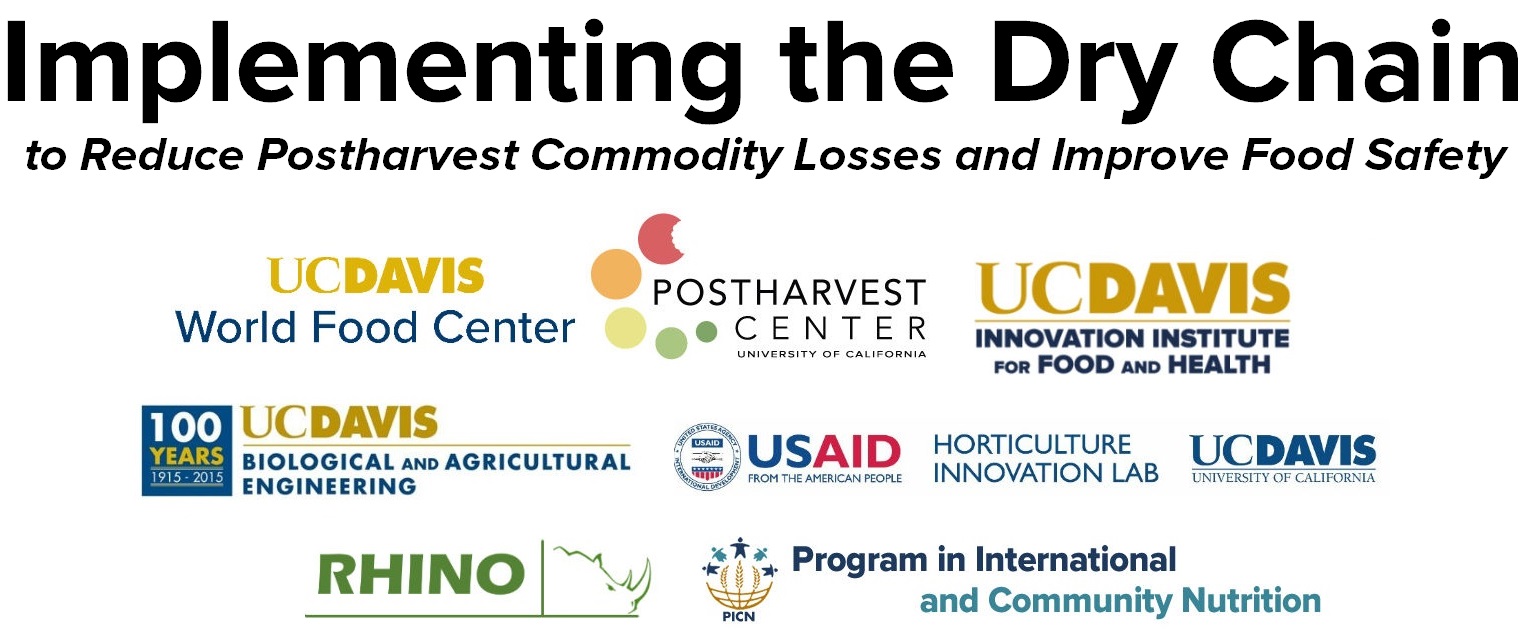
Workshop: Implementing the Dry Chain
April 20, 2018 | Robert Mondavi Institute, UC Davis
The UC Davis World Food Center hosted a workshop for key academic and industry experts on the dry chain, a method for producing and storing food in dry conditions to reduce food waste and prevent mycotoxin contamination of foods.
As much as one-third of agricultural productivity in many parts of the world is lost between the farmer and the consumer due to poor postharvest practices. While the cold chain (i.e., rapid cooling and maintenance of refrigeration in the distribution system) is well-known as a key solution for this problem for fresh products, the corresponding “dry chain” for dry commodities is less recognized. This is particularly the case in warm, humid climates, where inadequate drying and packaging not only result in loss of quality, but also in the production of mycotoxins (e.g., aflatoxin, fumonisin) that contaminate the food supplies of 4.5 billion people, causing liver cancer and other illnesses. A critical intervention in these climates would be to implement the dry chain, or the drying of commodities below an equilibrium relative humidity of 65%, which prevents fungal growth and therefore the production of mycotoxins, followed by waterproof packaging.
The workshop was hosted by the World Food Center alongside multiple campus and external entities and resulted in a collaborative federal grant proposal from several academic institutions, including UC Davis, which has been invited to the formal proposal stage after a successful initial inquiry.
